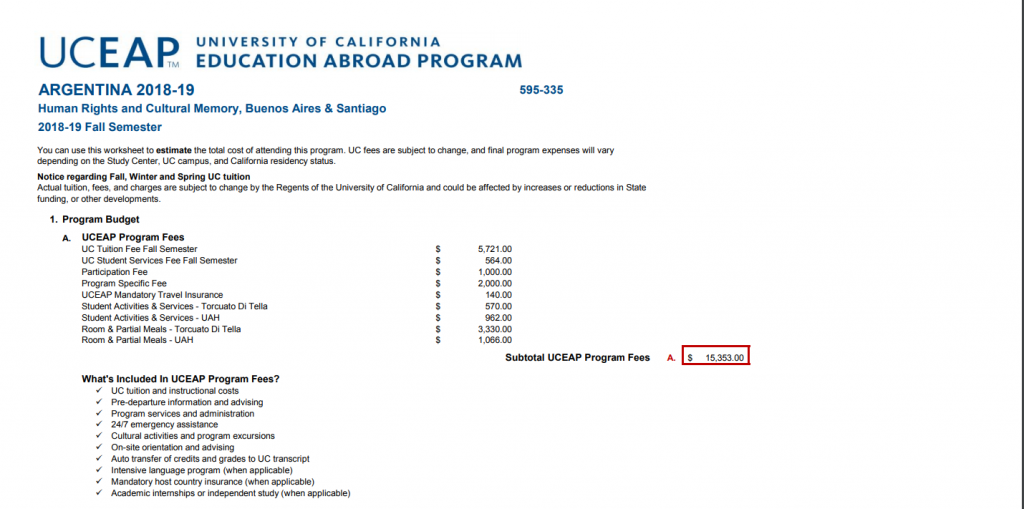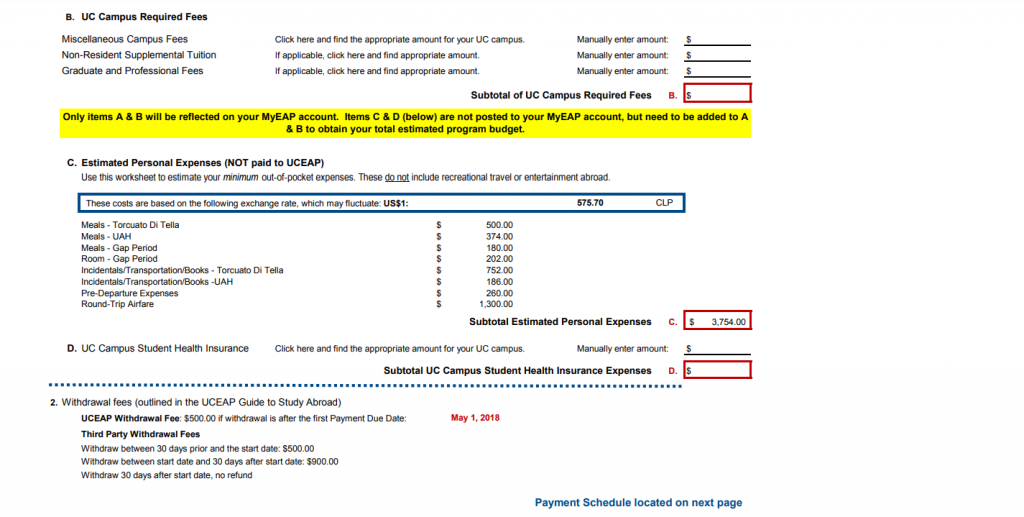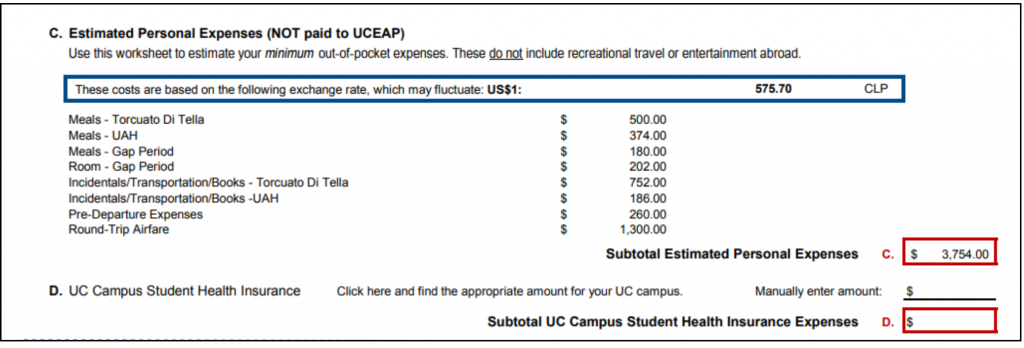Why Study Abroad?
On:

2019-03-30


BRB Bottomline: Studying abroad, having those
once-in-a-lifetime, special experiences, doesn’t just have to be a bucket list activity. With enough research, planning, and budgeting, anyone can study abroad on a dime.
Imagine: you’re sitting in the shade of the Eiffel Tower, a picnic array complete with French brie, fresh fruit, Pinot Noir—all the French necessities— laid out before you, watching as tourists and families dance around the scenic grounds. Maybe you’re providing aid to impoverished villages in rural Ghana as you develop crucial sustainable development initiatives. Or, what about immersing yourself in Peruvian culture, eating Cuya and sipping Pisco, as you stand, breathless, atop the sacred ruins of Machu Picchu.
College is about experiencing new things, and studying abroad is one of the best ways students can force themselves to embrace new experiences: traveling the globe, wandering ancient cities, eating mysterious foods, diving deep into culture and diversity. While this may sound like the stuff of fairytales and far-off dreams, Berkeley offers amazing Study Abroad programs that can make these dreams a reality. For many, studying abroad may seem like an unaffordable luxury; however, traveling can be more affordable than you think! With the many resources and tools that Berkeley has at your disposal, you can have that once in a lifetime experience without breaking the bank.
Study abroad programs allow students to travel to a partnered institution abroad and spend a period of time immersed and engaged in a new environment. Students can choose to Study Abroad during the fall, spring, and summer sessions or for a full academic year, with varying costs depending on the program and duration. Through Berkeley Study Abroad, students have 300 options in 50 countries and 120+ universities across the world!
When going abroad during the academic school year, UCEAP (UC Education Abroad Program) will be the primary program provider. During the summer session, many other providers offer programs, e.g. Berkeley Global Internships, Berkeley Summer Abroad, Independent Programs, etc.
According to the Higher Education Act (HEA), study abroad programs at foreign institutions affiliated with the university are eligible for federal aid. To be eligible for financial aid, you must be taking at least twelve units during the academic semester and six units during the summer session, although some programs have higher minimum enrollment requirements. Remember that all financial aid offered to you will transfer during your time abroad, adjusted for the specific program’s cost of attendance. However, for Independent Study Abroad Programs, there is no financial aid available. If you’re interested in an Independent Study Abroad Program, you will have to fund it out of pocket.
Start planning at least 6-9 months before the term that you plan to travel (earlier is always better!).
Remember that a large part of affordability comes with picking a program in a part of the world with a lower cost-of-living. Similar to how prices are more expensive in Berkeley compared to Oakland or Alameda, the amount you can afford with your set budget varies according to how expensive the goods and services in that city are. European programs may be more expensive than programs in Southeast Asia or South America, so, depending on the experience you want and the budget available to you, choose wisely.
Check the UC Berkeley Study Abroad website to explore different programs all around the world.
Once you’ve decided on a specific program, go onto the participant’s page on the UCEAP website to find out the cost:
This is a comprehensive estimate of what your program will cost and what to budget for. As an example, let’s say that you had planned to travel to Argentina for the “Human Rights and Cultural Memory” program in the Fall 2018 semester. This is what your estimated budget would look like:

Part A. highlights the portions of your budget paid to the partner institution: tuition, fees, some meals, etc. The UCEAP Mandatory Travel Insurance is required in addition to your own health insurance, which will be factored in later.

Part B. refers to UC Campus Required Fees. The Miscellaneous Campus Fees vary each year. For the 2018-2019 school year, the Berkeley campus fee was $727 for the fall and spring semesters and $0 for the summer quarter. Note that Parts A. and B. will be paid through your MYEAP account, your student portal for all things study abroad.

Part C. reflects your estimated personal expenses, which will vary per individual: airfare, housing, food, transportation, etc. Part D. includes your Campus Student Health Insurance cost. For many of us, this will be SHIP, however, if not, include your personal health insurance cost. Part C. and Part D. are not included in your MYEAP account but are included in this budget as an estimate of the full cost.
Before making any study abroad decisions, talk to a Study Abroad Adviser in the Study Abroad Office, located in 160 Stephens Hall. They can help you explore your options and clarify all the deadlines and requirements you’ll need for the program. With regards to financing, two Financial Aid Counselors host drop-in advising hours: 1-3pm M-F, except for Wednesdays.
Moreover, you should explore scholarships as a way of financing your adventures abroad! For example, the Berkeley Study Abroad Scholarship is a $1, 500 per semester scholarship automatically awarded for students with an EFC (Expected Family Contribution) below $50,000. Additionally, Berkeley offers many scholarships for Study Abroad students related to specific majors or destinations.
Studying Abroad doesn’t have to be daunting or unattainable. Understanding the resources and tools available to you will help you make the most of your time here at Berkeley, whether on campus or abroad. Do your own personal research, go in to talk with a study abroad adviser, and plan ahead. Having an amazing, once-in-a-lifetime experience abroad is possible!
We are a student group acting independently of the University of California. All information on this website is published in good faith and for general information purposes only. Business Review at Berkeley does not make any warranties about the completeness, reliability and/or accuracy of this information. The Editorials section features views of the individual authors and do not reflect the position of our organization as a whole or of the greater UC Berkeley community. No article or portion of an article should be construed as providing financial, legal, or political advice. Any action you take upon the information you find on this website is strictly at your own risk. Business Review at Berkeley will not be liable for any losses and/or damages in connection with the use of our website.
Designed using Unos Premium. Powered by WordPress.